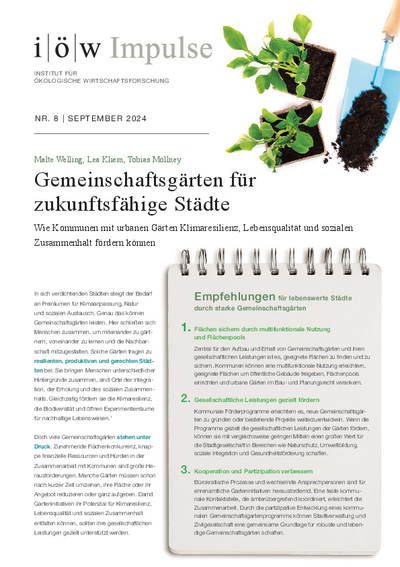Community gardens for sustainable cities
In densely populated cities, there is a growing need for open spaces for climate adaptation, nature and social interaction. This is exactly what community gardens can achieve: the Himmelbeet garden in Berlin, for example, is a popular social meeting place that offers environmental education, intercultural events and recreation in green spaces. At the same time, it produces 1,700 kilograms of vegetables a year and absorbs 9,000 liters of heavy rainfall. Through these and other services, it provides a value for society worth 1.5 million euros per year.
Such gardens could make an even greater contribution to resilient, productive and socially just cities if municipalities were to create better conditions. Many garden initiatives are under pressure: suitable spaces are rare in city centers and short usage contracts make long-term planning difficult. At the same time, ideas can often only be realized with donations. Also, cooperation with the city administration is often difficult.
Based on transdisciplinary research with garden initiatives and municipalities, the impulse paper therefore proposes three key areas for improvement:
1. In order to find and secure areas for community gardens, municipalities can set up land pools, facilitate multifunctional use, release suitable areas around public buildings, and anchor urban gardens in building and planning law.
2. When municipal funding programs specifically support the services that gardens provide for society, they can create great value in areas such as nature conservation, environmental education, social integration and health promotion with comparatively little funding.
3. A permanent contact person and coordinator in the city administration facilitates cooperation with garden initiatives. In addition, a municipal community garden program is recommended, which is developed in a participatory process with the community gardens.



